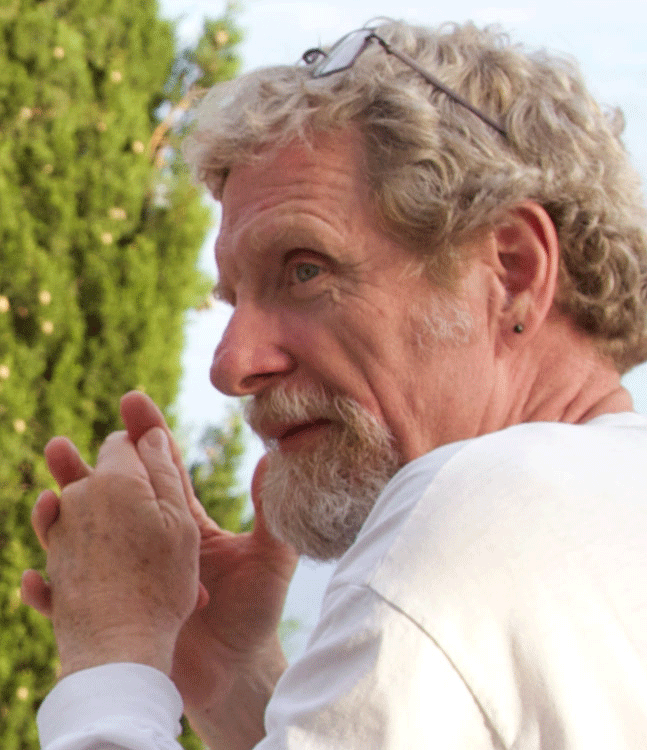May 01, 2022 | The McFall-Ngai and Ruby labs move to CaliforniaAfter 7 years, the McFall-Ngai and Ruby labs officially say aloha and mahalo (again) to the beautiful Kewalo Marine Laboratory and the University of Hawaiʻi-Mānoa. The labs will be moving to the mainland to work in the new Carnegie Institute research division, directed by Dr. McFall-Ngai and located in Pasadena, California. While the new division is being constructed, the labs will be stationed in the California Institute of Technology. The labs are very excited for this big step and for the opportunity to work among the vibrant Caltech community. |
Sep 23, 2019 | Podcast: Hawaiian Bobtail Squid: Using Light to Hide in the Dark—Dr. Margaret McFall-Ngai—The Squid Vibrio LabsDr. McFall-Ngai dives into the details of the research she’s carrying out, offering a wealth of information which includes how and why the Hawaiian bobtail squid is an ideal model for her research, how the bacteria induce gene expression changes in the squid and the nature of how these gene expression changes manifest, how hosts identify symbiotic partners in general, findings of related research, and where her research is headed. News Article |
Mar 23, 2019 | Margaret McFall-Ngai named ARCS Foundation Honolulu Chapter's 2019 Scientist of the YearBased on her “outstanding record of original research and mentorship’. Presentation at the 2019 ARCS Scholar Awards Banquet on Monday, May 6, beginning at 5:30 at the Outrigger Canoe Club. |

Dr. Margaret McFall-Ngai is the inaugural director for the Carnegie Institution for Science’s cross-disciplinary research division, the Division of Biosphere Sciences and Engineering, focused on integrating diverse fields of biology, from molecular biology to ecology, to tackle pressing issues such as climate change and sustainability. During the development of the new center in Pasadena, California, Dr. McFall-Ngai’s lab is located at the California Institute of Technology where she is also a Faculty Associate.
Prior to her current position, Dr. Margaret McFall-Ngai was a professor at the University of Hawaiʻi-Mānoa (1996-2004 and 2015-2021) and served as the Director of the Pacific Biosciences Research Center from 2015 to October 2020. She instituted the C-MAIKI center for microbiome research at UH-M and was PI of the WM Keck Foundation’s environmental microbiome observatory and an NIH COBRE grant to investigate the role of environmental microbiomes on human health. She has also held tenured positions at the University of Southern California (1989-1996) and the University of Wisconsin-Madison (2004-2015).
Her research laboratory studies two areas: (i) the role of beneficial bacteria in health using the squid-vibrio model; and (ii) the biochemical and molecular ‘design’ of tissues that interact with light. In addition, for the last 25 years, she has been heavily involved in promoting microbiology as the cornerstone of the field of biology, for which she worked in the White House during the Obama administration on the National Microbiome Initiative. She also co-organizes and runs an advanced summer course on microbial symbioses as a visiting professor at the Gulbenkian Institute in Lisbon, Portugal.
Dr. McFall-Ngai was (2011-2013) a Moore Scholar at California Institute of Technology, and a Guggenheim fellow, and she currently is a member of the American Academy of Microbiology (2002), the American Academy of Arts and Sciences (2011), and the National Academy of Sciences (2014). She received a Doctor Honoris Causa, École Polytechnique Fédérale de Lausanne, Switzerland in 2015. In 2017, she became a Howard Hughes Medical Institute Professor, and the ARCS Foundation Scientist of the Year.

Dr. Ruby has worked for 30 years on beneficial bacterial-host interactions. He was hired into the Symbiosis Cluster at the University of Wisconsin-Madison in 2004, where he held the Steenbock Chair of Microbiological Sciences, and was Vice-Chair of the Department of Medical Microbiology & Immunology. He has served on the Board of Governors of the American Academy of Microbiology, been a visiting professor at HuaZhong U, China, and an EU/Marie Curie ITN Researcher at the Max-Planck Institute, Bremen, Germany, and received the University of Hawaiʻi’s Regents Medal for Excellence in Research. Recently, he was a Moore Scholar at the California Institute of Technology and was Chair of the American Academy of Microbiology Awards Board. With Nicole Dubilier, he instituted and chaired the Gordon Research Conference on Animal-Microbe Symbioses, and is currently directing the annual West Coast Bacterial Physiologists Conference at Asilomar, CA. Until recently, he co-directed the NIH-COBRE Integrative Center for Environmental Microbiomes and Human Health at the University of Hawaiʻi.
In 2022, Dr. Ruby moved his lab to the new Carnegie Institution for Science’s Division of Biosphere Science and Engineering in Pasadena, California, currently located at the California Institute of Technology. His current research uses (i) a broad-based approach to analyze how sequential signaling cascades and nutrient manipulation produce rhythmic patterns of bacterial metabolism that underlie symbiotic persistence, (ii) new analytical and imaging approaches to discover novel pathways of signaling between a symbiont and its host, and (iii) comparative and functional genomics and epigenetics to discover principles controlling population-level interactions among symbionts.